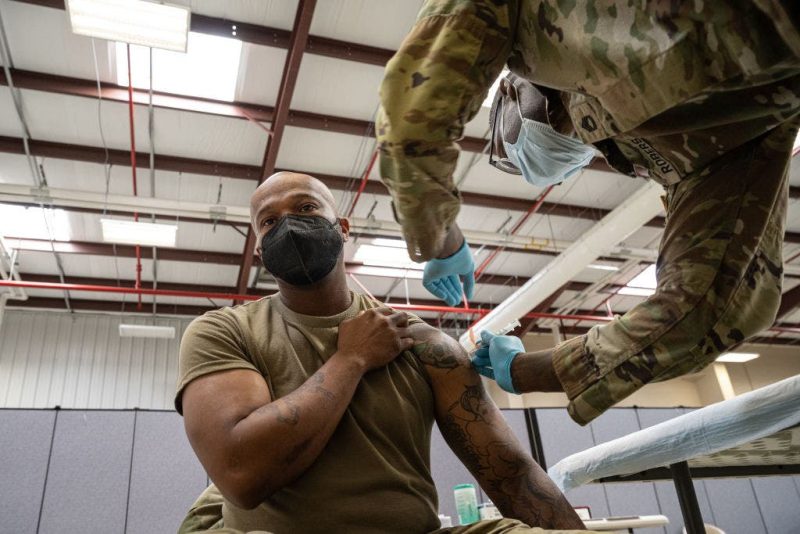
Biden stance on NDAA still unclear after Senate includes language to remove vaccine mandate in US military
President Biden’s position on the mammoth $847 billion National Defense Authorization Act (NDAA) remains unclear Friday as the bill heads to his desk with one major line of issue: the U.S. military’s vaccine mandate.
White House National Security Council (NSC) communications coordinator John Kirby dodged questions on how the president will handle the defense budge after the Senate passed the measure with a stipulation that would repeal COVID vaccine requirements in the ranks.
Top administration officials, including Biden and his Secretary of Defense Lloyd Austin, have thrown their weight behind keeping the mandate, arguing it is a matter of troop readiness and therefore national security.
‘The president still supports the secretary of defense’s position that repealing the mandate is not in the best interest of our troops. It’s not in the best interest of our military. It is a health and readiness issue,’ he told reporters Friday morning.
However, the NDAA, passed by the Democrat-controlled Senate in an 83-11 vote, has forced the president to decide between his vaccine mandate and the national defense budget.
Though Democrats agreed to stop enforcing the mandate, the Senate blocked a push by Sens. Ron Johnson, R-Wisc., and Ted Cruz, R-Texas, who looked to reinstate troops booted from the ranks over vaccine regulations and offer them back pay, in 40-54 vote, reported Politico.
The bill approved by the Senate authorized an additional $45 billion over the $802 billion Biden requested.
The breakdown would be split between the Defense and Energy Departments with $817 billion going to the Pentagon, while $30 billion would reportedly be allotted for nuclear weapons development.
Kirby told reporters that Biden ‘still believes that repealing the mandate is a mistake,’ but added, ‘He also obviously believes that it’s important to fund our military.’
Kirby stopped short of predicting whether the president will veto the NDAA.
‘Every single year the NDAA has things in it that we support, and it has things in it that we don’t support. The President will judge this NDAA as a whole, just like he has in the past,’ he added.
